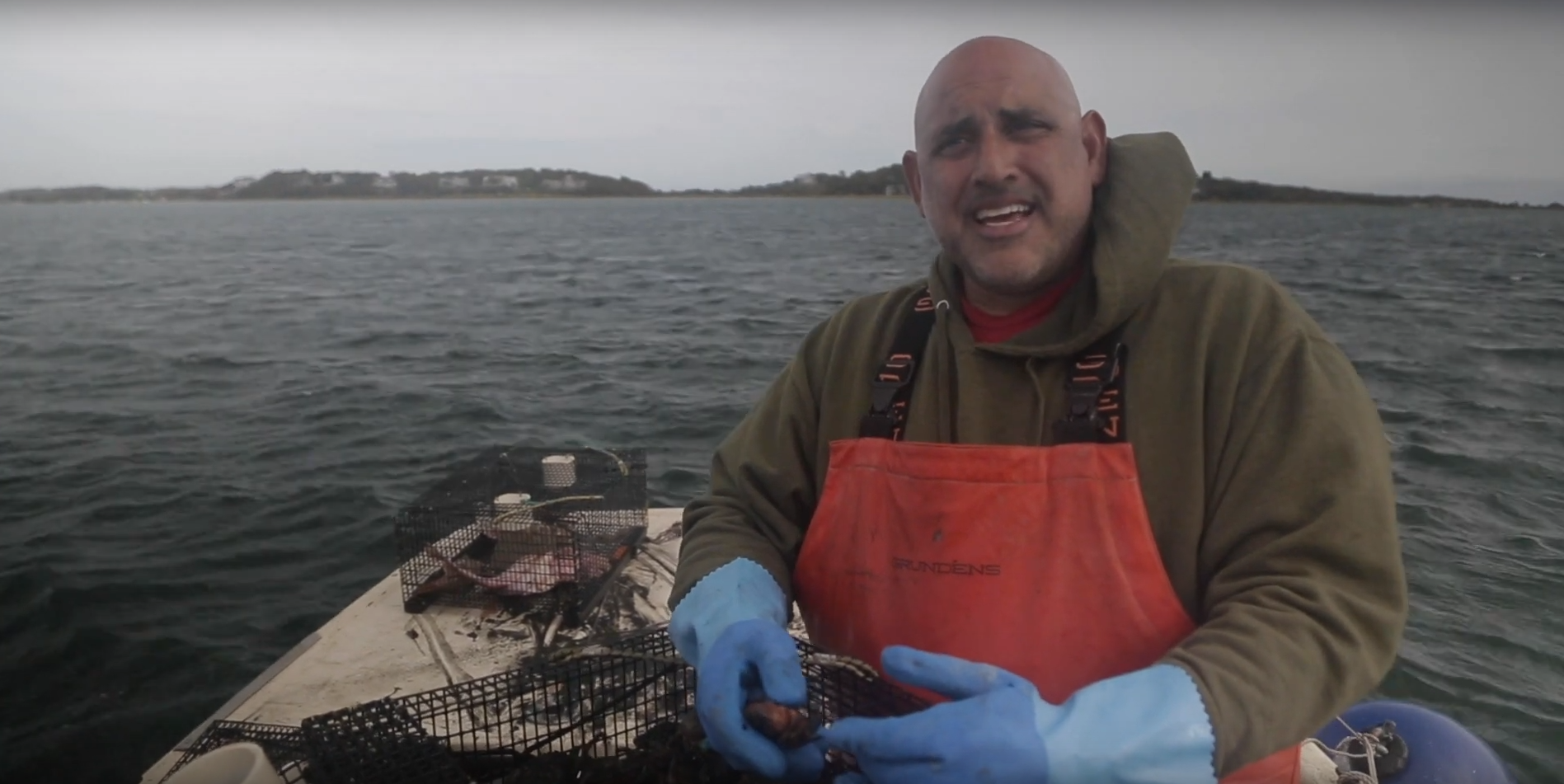
Voices on Climate Change
“Cape Cod was named for the codfish, and now we don’t see any codfish anymore,” observes Chatham fisherman Jamie Bassett, gesturing out to the Atlantic Ocean from his boat, “Does that mean the waters are warming around here? I don’t know. I’m not a scientist, I don’t know what the optimum temperature is for the planet. All I know is that we don’t have any codfish anymore.”
Jamie is featured in an MAPC project that brings seldom-heard voices to the climate equity conversation in an effort to better understand and communicate what matters most in the quest for climate resilience: protecting people and their livelihoods.
Dracut farmer Dave Dumaresq reflects in another video:
“One of the biggest impacts on the earth is our food consumption. Every single day we are eating. Question is, what are we eating? Where did it come from? What are the environmental costs of getting that food and consuming it? How much of it was wasted? How much fossil fuel went into its production, into its shipping, into its packaging? I would argue, the more in-season and local food you eat, the less of an impact it’s gonna have on our environment.”
People like Jamie and Dave , who work outdoors or in close contact with vulnerable populations or vulnerable ecosystems, are currently experiencing – and finding ways to deal with – the effects of climate change. MAPC shares their stories as a way to bring a personal perspective into the climate change debate.
These videos are part of MAPC’s Climate Perspectives project, which brought together focus groups of workers in the construction, farming, home health care, and fishing industries, and collected a wealth of stories about how people in these fields are reacting to and preparing for climate changes. Focus group participants told stories about how personal care aides must contend with severe weather while trying to reach their clients and about how the construction industry is adapting to increased demand for resilience infrastructure, for example. Based on their stories, MAPC released the Climate Perspectives report, which summarizes climate impacts, barriers to resilience and resilience assets and strategies by industry.
Across the state and country, people are studying, writing about, and planning for how climate change will affect certain geographies and demographic groups. The Climate Perspectives project is unusual because it considers how hotter days, changing weather patterns, and changing ecosystems, among other impacts from climate change, are currently affecting industries and workforces.
Through MAPC’s groundbreaking Artist-in-Residence program, the agency has partnered with two artists to transform the stories collected from industry focus groups into inspiring art through the Schools of Thought on Climate Change installation and to communicate messages of resilience and urgency through the Climate Perspectives videos.
MAPC debuted the Climate Perspectives videos featuring Jamie and Dave at the MetroCommon 2050 Climate Equity forum on Wednesday, December 11, integrating the video projections into the Schools of Thought on Climate Change sculptural installation of koi-inspired fish and "thought bubbles" created by MAPC’s 2017-2018 Artist-in-Residence, Carolyn Lewenberg, and Nia Holley.
The Climate Perspectives video element was conceived and led by MAPC’s 2018-2020 Artist-in-Residence Hortense Gerardo. Gerardo directed the videos in partnership with co-director and cinematographer Monica Cohen. Cohen also provided production services through The BOOM House.
Thanks to David Dumaresq, Stephen Kiplagat Chebet, Stephen Kearns, Jason Cluggish, and Jamie Bassett for appearing in the videos.
Credits:
Directed by: Hortense Gerardo and Monica Cohen
Produced by: The BOOM House
Sound: Brian Misiewicz
Music: Zander Sehkri and Michael Nickolas Music
The Climate Perspectives project is a collaboration among members of MAPC's public health, economic development, and arts and culture departments.
